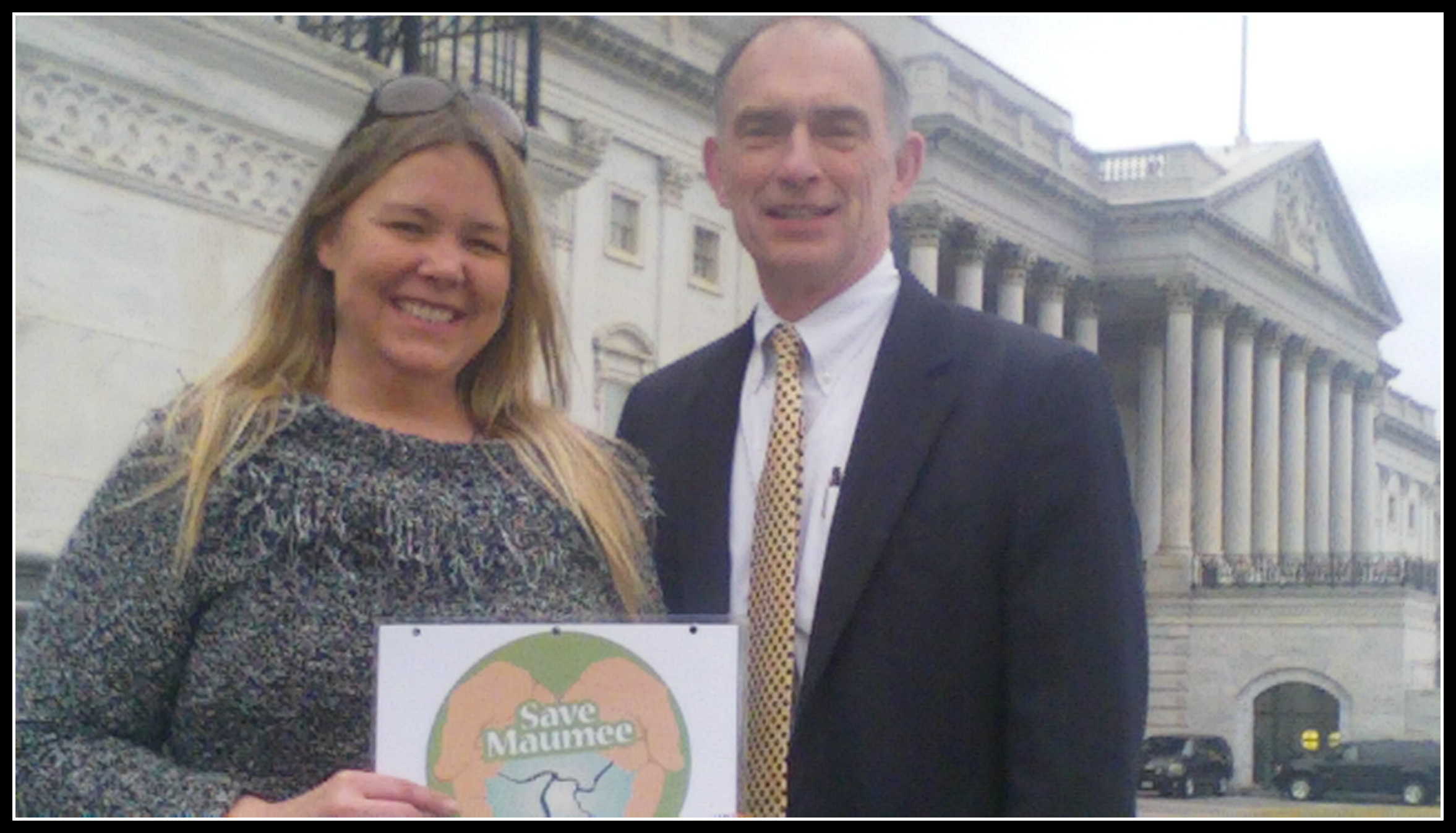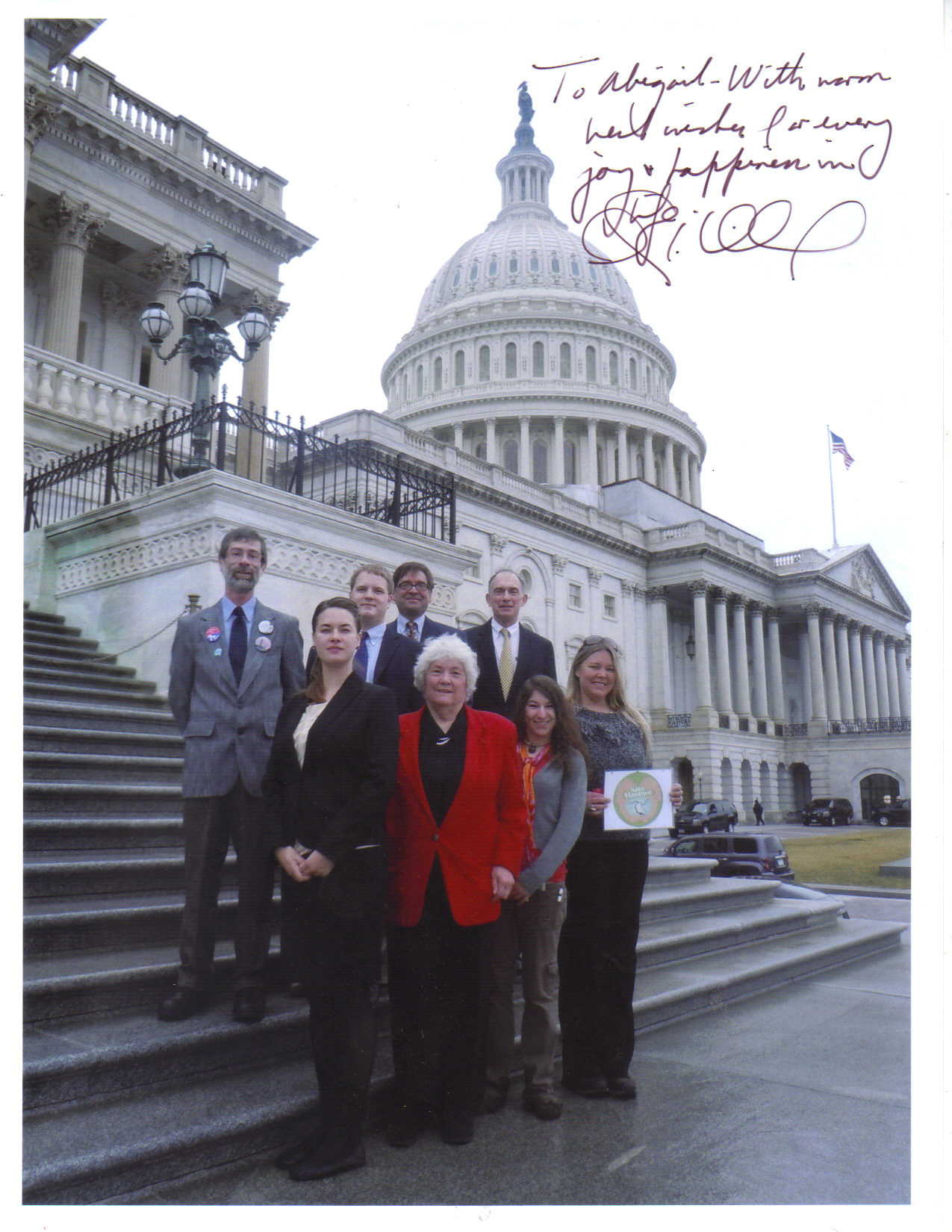If you would like to see what we said in Washington D.C. last week – CLICK HERE for Save Maumee 2012 Newsletter:
Save Maumee Grassroots Organization represented northeast Indiana for Great Lakes Days again this year in Washington D.C. for Clean Water Week, through a grant from Healing Our Waters. Save Maumee volunteers have represented northeast Indiana in D.C. every year since 2008! This year was special though because we had Save Maumee volunteers, Celia Garza, Bruce Allen, Ryan Bailey and Abigail King all in attendance!
Today, streams and lakes suffer from a legacy of toxic pollution, the spread of invasive species, and loss of habitat. These factors, among others; threaten jobs, public health and way of life for people who depend on clean water! Clean water, in fact, has ranked as the number one environmental concern for the last 10 years!
125 people were included in the creation of this document if you would like to know more!
Great Lakes Regional Collaboration
On February 28th & 29th Save Maumee volunteers Bruce Allen, Celia Garza, Ryan Bailey and Abigail King spoke to the following federal legislative offices.
U.S. Federal Senators:
Dan Coats met with Celia Garza
Richard Lugar met with Abigail King
U.S. House of Representatives:
Marlin Stutzman met with Abigail King, Bruce Allen and Ryan Bailey
Joseph Donnelly met with Ryan Bailey
Mike Pence met with Bruce Allen
Peter Visclosky met with Abigail King, Celia Garza and Bruce Allen
Save Maumee representatives were only one group representing 8 States and 2 Provinces of Canada. These groups speak for over 30 million people who depend on The Great Lakes and their tributaries for drinking water. Representation of groups that lobbied on Capitol Hill included: Alliance for the Great Lakes, Save the Dunes, Great Lakes Commission, Fresh Water Future, National Wildlife Federation, American Rivers, Waterkeeper Alliance, Restore the Earth, Cardno JFNew, Hoosier Environmental Council, and Natural Resource Conservation Services, Northwest Indiana Forum, League of Women Voters and National Parks Conservation Association, just to name a few.
Priority issues for the groups were:
1. Great Lakes Restoration Initiative protecting $300 million from a 20% budget cut President Obama has requested $300 million for Great Lakes Restoration Initiative (GLRI) in 2013. Fully implementing the GLRI is a strategy projected to generate at least $50 billion in long-term economic benefits. Over 22 million Americans live in the Great Lakes basin and an estimated 1.5 million jobs generating $62 billion in annual wages are directly related to the lakes. Nearly 700 projects are producing measurable results for our waterways! Clean rivers and lakes are good for the economy!
The Great Lakes maintains a $7 billion dollar industry for fishing, so it remains very important to maintain the language of the Clean Water Act. We requested that legislators not support weakening of the language of the Clean Water Act, and asked that they also not support any weakening of the EPAs ability to use their power of enforcement and oversight.
2. Asian Carp Support full implementation of Asian Carp Control Strategy Framework; accelerate the U.S. Army Corps of Engineers study to protect against inter-basin transfer of invasive species. If you would like to see our local available entry area for Asian Carp, read the letter here: from Betsy Yankoiak, Little River Wetlands Project’s Executive Director
3. Incorporate strong Great Lakes conservation provisions and funding in the 2012 Farm Bill. Conservation of land will help to protect waterways by reducing soil erosion and nutrient runoff. We need strong provisions and funding for conservation and restoration efforts that address soil and water conservation.
Congress must maintain funding levels for these programs at $6.2 billion a new Great Waters Regional Conservation Partnership Program in the next farm bill.
4. Invest in infrastructure, separate sewers while repairing and upgrading aging infrastructure. Make efforts to begin separating storm water from sewer drainage. Reauthorize and provide funding for the Clean Water and Safe Drinking Water State Revolving Funds.
Jay Jensen, Federal Land and Water Manager and speaking for EPA Director Linda Jackson, discussed the White Houses Restoration Action Plan, and Restoration Initiative. The challenge lies in communication; White House cares about the environment, but is also deeply focused on deficit reduction and job creation.

Great Lakes Restoration at work in Indiana:
Many groups are collaborating with the federal government to implement a comprehensive restoration strategy for the Great Lakes. This partnership is generating on-the-ground actions that will improve Indianas economy, environment and the quality of life.
Great Lakes Commission Fact Sheet on Indiana: A vital Economic Asset for Indiana
or
you can find the 2012 Commission Meetings and other fact sheets

